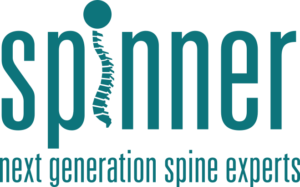Sponsoring and exhibition is available also to Research Projects aiming to improve dissemination of the research activities.
Project title: In Silico Clinical Trials for treatment of Acute ischemic stroke
The INSIST consortium is the result of a truly multi-disciplinary and multi-sectorial effort. It is headed by an interventional neuroradiologist and combines the knowledge of multiple experts in computational science, biology, biophysics, biomedical engineering, epidemiology, and radiological, neurological, and cardiovascular clinical research. The crucial involvement of academic and large teaching hospitals will secure access to patient data and clinical expertise. This will ensure that the in silico tools resulting from this project have a direct impact in the clinic. All the relevant end users (neurologists and intervention radiologists, as well as device- and pharma industry) are member of the INSIST consortium and involved in the entire process to ensure a successful and relevant development of the in silico tools.
Project title: In-silico Development- and Clinical-Trial-Platform for Testing in-situ Tissue Engineered Heart Valves
SimInSitu promises the first in-silico clinical trial platform to predict the short- and long-term response of in-situ tissue engineered heart valves (TEHV) in humans. We will enable the simultaneous assessment and optimization of the performance and safety of TEHV by a multidisciplinary approach combining advanced patient-specific computationalmodels, tissue & growth remodelling algorithms, and dedicated device models.
Project title: From TIssue to Molecular mechanisms of restenosis after peripheral Endovascular interventions
TIME is a project funded by Fondazione Cariplo (Italy), based on the collaboration between Politecnico di Milano, Politecnico di Torino, University of Florida and Houston Methodist Research Institute. The project aims to develop a predictive systems biology model of vascular remodeling based on patient-specific data to elucidate the underlying mechanisms of restenosis in peripheral arteries after endovascular treatment and to give indication on the interdependency of multiple factors (from molecular to tissue level) for this disease.
CompBioMed is a European Commission H2020 funded Centre of Excellence focused on the use and development of computational methods for biomedical applications. We have users within academia, industry and clinical environments and are working to train more people in the use of our products and methods. Computational methods, based on human biology, are now reaching maturity in the biomedical domain, rendering predictive models of health and disease increasingly relevant to clinical practice by providing a personalized aspect to treatment. Computer based modelling and simulation is well established in the physical sciences and engineering, where the use of high performance computing (HPC) is now routine.

SPINNER was a doctoral training programme developing researchers in biomaterials, bioengineering and in silico modelling to be in a position to design the next generation of repair materials and techniques for spine surgery. (Link is no-longer active).




